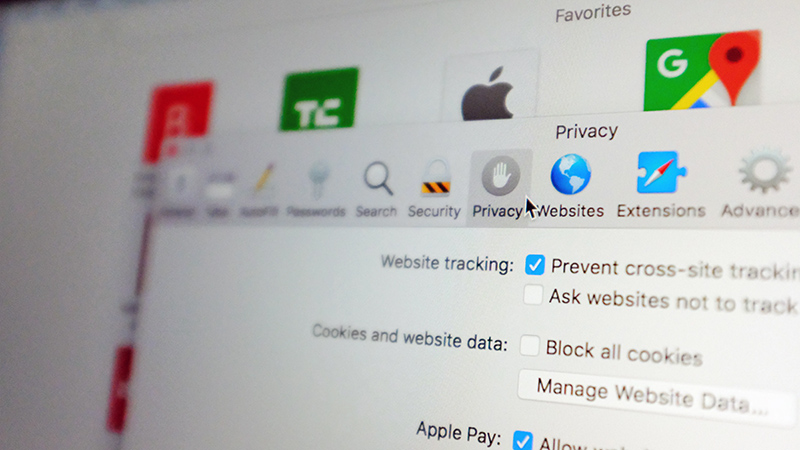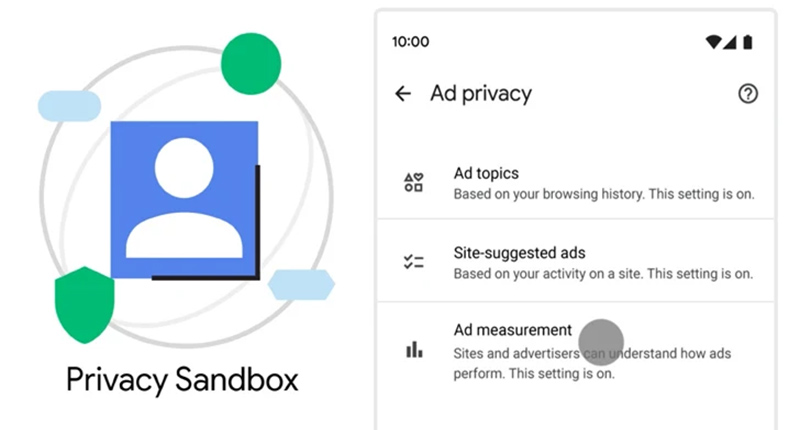
The digital landscape is constantly evolving, and one of the most significant changes in recent years is the growing importance of user privacy.
Regulations such as the GDPR (General Data Protection Regulation), will impact the way companies segment their audiences, measure campaign performance, and personalize user experiences on their websites.
In the face of these new changes, the era of third-party cookies is coming to an end, which have been fundamental in digital marketing for data tracking and online ad personalization. Cookies are being phased out by major web browsers.
At Optimanova, we’ve been closely tracking the changes taking place in the world of measurement and the possible solutions proposed by various platforms, and have implemented them on the websites of several of our clients. We will tell you how these changes may affect you and how we can help you optimize your digital marketing strategy so that your business is better prepared for the future without third-party cookies.
What is happening with third-party cookies?

When a user visits website A, a small piece of data is stored in the user’s browser by a website B. We call that piece of data a third-party cookie. These cookies allow website B (usually ad platforms) to track user activity across different websites, gathering information to personalize ads and measure their effectiveness.
These cookies have been valuable for years, providing the ability to build audience profiles, target ads and understand user behavior. However, their use and the fact that they compromise user privacy have prompted major technology platforms and regulators to reconsider their use and seek alternative solutions to replace them.
The first to take action: Safari and Firefox
Safari (Apple) and Firefox (Mozilla) led initiatives to limit the use of third-party cookies. Safari implemented Intelligent Tracking Prevention (ITP) in 2017, making it progressively more difficult to track users between the different websites they visit, while Firefox introduced Enhanced Tracking Protection (ETP) in February 2021, with a focus on blocking third-party cookies rather than eliminating them altogether. These measures will not eliminate cookies but restrict their ability to operate across domains.
Google Chrome and the road to a more private internet

Google Chrome, with a market share of over 60% of global browsers, plays a pivotal role in the evolution of digital advertising. While Google initially planned to phase out third-party cookies by 2022, the process has been delayed to ensure advertisers and brands have time to adapt to new solutions.
Google’s plan established a phase-out by the end of 2024, but this plan has not been fulfilled and they estimate that it could be implemented by 2025. To this end, Google is developing its own initiatives under the name “Privacy Sandbox”, designed to provide companies with advanced tools to continue developing successful digital businesses while protecting the privacy of online users.
These changes are driven by regulations such as the GDPR (General Data Protection Regulation) in Europe and the CCPA (California Consumer Privacy Act) in the United States, among others, which require more transparent handling of personal data and reinforce the importance of protecting user privacy, leading the industry to implement more ethical and sustainable strategies.
How can these changes affect your website?

This transition to a cookie-free world will bring considerable changes and consequences if the necessary measures are not taken. For example:
Limited user tracking capability
Many data analytics platforms, such as Google Analytics 4, use third-party cookies to track web traffic and measure user behavior. Without these cookies, companies could lose key information about conversions and how users interact with their business, limiting the ability to optimize marketing strategies and gain data with which to improve the user experience.
Advertising ineffectiveness
Platforms such as Google Ads and Meta Ads currently rely on third-party cookies to collect information about users who interact with ads and subsequently convert on the website. This allows them to measure the effectiveness of campaigns and adjust targeting. Without these cookies, targeting accuracy is lost and advertising effectiveness is reduced.
Loss in audience segmentation
Third-party cookies also enable user segmentation based on behavior, interests, and demographics, enhancing campaign performance. Without these cookies, businesses must rely on less detailed data, which can reduce effectiveness and increase advertising costs.
Solutions for a world without third-party cookies

To adapt to this new landscape, companies need innovative solutions that maintain the performance of their campaigns while respecting user privacy regulations. Here are the most relevant solutions:
First-party cookies
First-party cookies are managed directly by the owner of the website the user is visiting. These cookies are typically used for essential functions, such as remembering user preferences, keeping the user authenticated during their session, or collecting analytical data on how they interact with the site, helping to improve the user experience. Unlike third-party cookies, these respect user privacy because the information collected is not automatically shared with other domains or external platforms. Their implementation can be even more effective when combined with strategies like server-side tagging, which we will explain next.
Server-side tagging
Server-side tagging is a technique that allows data to be processed directly on a dedicated server, instead of running cookies on behalf of a third party in the user’s browser.
These are processed under the website owner’s domain and then managed on a server, improving data protection and mitigating issues related to ad blockers and other browser restrictions. Google Tag Manager can be used in the configuration of this solution, making it easy to implement and manage tags without the need to directly modify the website code, ensuring good data tracking while respecting user privacy.
Google’s Privacy Sandbox

Google continues to work on a set of tools within the Privacy Sandbox to replace the use of third-party cookies. Although these solutions are still under development, we do not rule out that they will be part of our future. Some of the solutions proposed by the Privacy Sandbox are:
Topics API
With Topics API, a user’s browser will analyze their browsing history over a period of time to determine their main interests. These interests will be categorized into predefined general “topics” and only some of them will be shared with the page the user visits. It also gives users the ability to choose which topics to share, allowing them to receive ads relevant to the subjects they are interested in.
Protected Audience API
The Protected Audience API allows advertisers to display personalised ads based on specific user actions, such as visiting a product page or adding a product to the cart, without compromising privacy. These interest groups based on the user’s interactions with the website are stored locally in the browser, without sharing sensitive information with external servers.
For example, if you visit an online store and search for cameras, you may be included in a group of “interested in cameras”. Later, when visiting another site, your browser can display camera-related ads without exposing your browsing history. This approach ensures advertising personalization while protecting user privacy.
Optimanova’s action plan
At Optimanova, we understand that the elimination of third-party cookies represents a significant challenge, but also an opportunity to reinvent digital marketing and make it more effective while respecting user privacy. We are fully prepared to navigate this new landscape.

We have adapted our methodologies to integrate more advanced measurement solutions such as server-side tagging, which allows us to accurately collect and analyze data even in this changing environment. In addition, we continue to refine our strategies as new technologies are developed to keep pace with new regulations.
We strongly believe that the shift towards a more privacy-focused digital ecosystem is not only necessary, but also an opportunity to adopt more ethical and sustainable practices. With a blend of innovation, expertise and dedication, we are ready to guide you in the web measurement of your business. Are you ready to take the next step? Contact us

